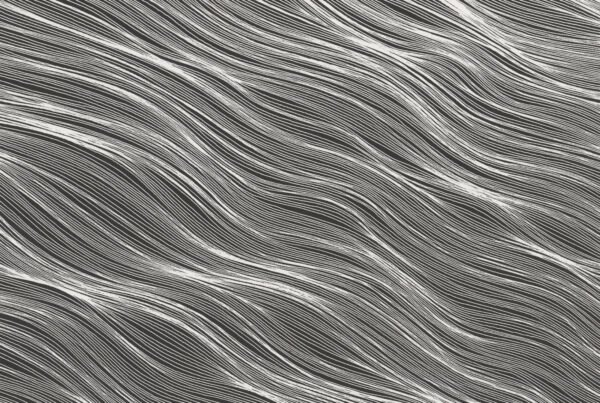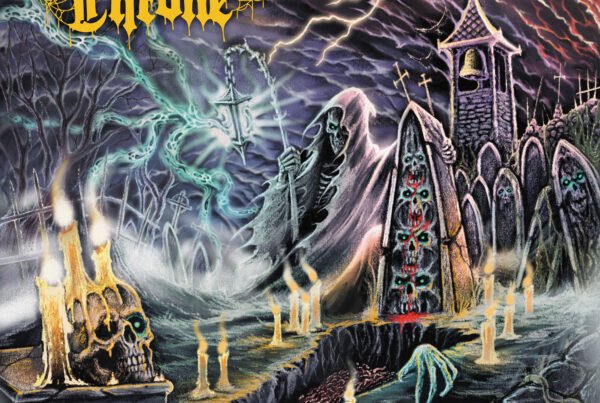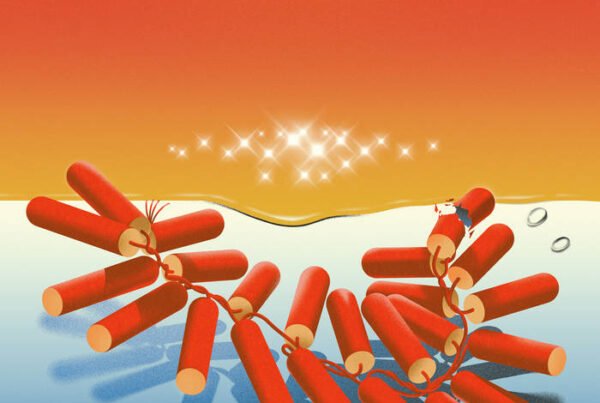Rewind the clock by five to ten years and Paragon would’ve been heralded as a magnificent album, packed full of groove-laden anthems. Unfortunately, it feels taxing and lacking any creative spark in 2019.
Release date: October 18, 2019 | Long Branch Records | Facebook | Bandcamp | Website
Uneven Structure have been around for over a decade now, their new record Paragon their fourth record in a career that has won plaudits from across the progressive metal scene. Their most recent album La Partition was a vast departure from their earlier sound, dropping most of the ambient layers for a gravelly post-metal influenced sound, which took the bands ferocity up a notch. However, Februus remained their best work; the exceptional song writing, combined with the intricate layering of progressive metal and ambience, along with the emotive, conceptual vocals set it far apart from other albums, arguably when djent was at its finest.
Paragon unfortunately doesn’t hold a candle to it. I hear you all flinch at this abrupt hot take, yet it needs to be said. The record is a slog to get through, most songs blending into monotony, shattered only by the scattering of some really great, heavy riffs. That being said, I have criticised another album this year for a similar issue – Snarky Puppy‘s Immigrance, and in a similar fashion, I believe it can work very well. Thinking back to my experience seeing the band at Radar Festival, I think live, these songs will be very fun to see. At Radar, they played “Innocent”, the first single from Paragon. It is a song I really didn’t get along with when listening at home, yet in the live setting I was taken aback at how heavy and most importantly how organic it sounded. I feel with the majority of these other songs, they will be injected with the life that is often missing throughout the album.
One of the major problems I have with the album is that in 2011 with Februus, and arguably in 2017 with La Partition, Uneven were trendsetters, branching away from musical tropes associated with progressive metal/tech-metal/djent, and establishing their own niche sound which is hard to compare to their peers. Their sound was unique, their conceptual album progressions too. With Paragon, it feels like they are locking step with the remaining active artists in the genre, notably those on their record label Long Branch Records, and throwing away the deep, enveloping concepts that helped elevate their music far beyond the artists I’ll mention throughout the review.
Negativity aside, they have grown in some areas, and have absolutely made their sound much more consumable from a wider market perspective. Uneven Structure has always been a band you consume in large portions, one track never enough, because usually tracks intertwine and lend themselves to the next. La Partition migrated away from that at times, whilst Paragon is fully digestible in individual tracks. This lends itself to the age of Spotify better, and the band have catered their material to be much more impactful in small doses. The songs follow a more traditional structure than in their other tracks, some of which exploded in riffs to begin with, before bedding down into thick melody sections.
There is, of course, plenty of utterly crushing songs as well, with Uneven Structure laying on the groove thick. In numerous songs you are introduced to the bands bread and butter, which is their ability to build up to titanic breakdown sections using cyclical riffs that on each rotation get slightly more depraved and furious. Alongside these riffs, lead singer Matthieu’s voice is at its best, his croaky roars imbuing the listener with all of his passion. In tracks like “Outlaw” and “Hero”, he absolutely lets rip.
Unfortunately, his cleans don’t inject the same energy as previous releases this time around, predominantly due to the fact there is so much of him singing. There isn’t enough variation in the way he sings anthems anymore – it is all very, very safe. I’d love to see him channel his harsh vocals much more on the next release, taking his clean lyrics back to a grittier, bleaker place. In Paragon, the vocals are much too anthemic (almost like Voyager), whilst failing to have any meaningful motifs that really stick with you like in “Funambule” or “Frost/Hail”.
There is a point in the album where I totally switch off each time, during or just after the ninth track “Jester”. Earlier in the review, I mentioned that Uneven were locking step with other bands, but in “Jester” that is taken too far. I had to check when it first came on that there wasn’t a full band feature by Vola, because the song sounded like it’d be quite at home on Inmazes. That boring, jarring, repeat riffing Vola utilise is smeared all across this track, yet the most startling adoption was the fucking xylophone. They could’ve gotten away with the riff alone, but the tacky dinks in the background were a step too far. The messy climax at the end caps off this nasty song.
Februus had a world-ending finale, built up through three tracks. It is hard to remember the last two tracks of the record, and that seems a suitable place to leave this review. Again, this isn’t a bad album, it still beats 70-80% of progressive metal being pumped out. But from a band who were at the peak of the djent mountain, it’s a shame. I would love Uneven Structure to strip back that djent tone again like in La Partition, get back to the ambient bleakness, whilst still channelling the ferocity they’ve developed so well. Fewer or more developed and interesting cleans, harsh vocals layered to create a more dissociating effect, and a return to the storylines that worked so well in 8, Februus, and La Partition would be best. Great effort, yet hard to distinguish from the other releases in the genre.






